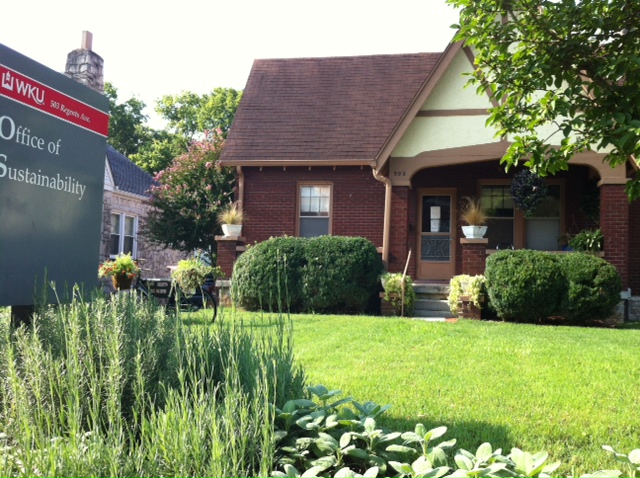Publication Date
2010
Abstract
As I reflect on the past year, I am filled with pride and hope by our progress in becoming a more sustainable WKU. The milestones are significant: completion of our first building for which we will seek LEED certification, sustainability included as a core commitment in the WKU Strategic Guide for 2010-2012 and a Resolution for Education for Sustainability adopted, the first Education for Sustainability faculty retreat, the Energy Savings Performance Contract project initiated and nearly completed, and WKU included in the Princeton Review’s Guide to 286 Green Colleges. These are but a few of the accomplishments made in 2010. While we are all hearty Hilltoppers, our efforts in sustainability are not driven by our competitive spirit to be the best in all of our endeavors, but the desire for a happier and healthier global community. We strive to lead in sustainability in higher education not because we measure our success by our inclusion on certain “lists” (although inclusion in the Princeton Review Green Guide is pretty great) but by our ability to be a model for best practices, both in our operations and services and in academics. Modeling and teaching sustainability has become a core value at WKU because we realize that it must be. WKU’s commitment to sustainability, whether demonstrated in campus operations or in educational programs, will help to ensure that our graduates are prepared to address the complicated environmental, social and economic issues we face today. They will be able to think critically, solve problems creatively and be engaged citizens. If that’s all we accomplish then we will have achieved great success. But our sustainability commitment pays dividends; it also leads us to reduce our environmental footprint, practice social responsibility, and conserve natural and economic resources. It encourages unprecedented cross-campus and community collaboration and partnerships. It supports our goal to be “A Leading American University with International Reach”. And it brings renewed meaning to the old WKU motto: “Life More Life”! I am pleased to present the 2010 WKU Sustainability Report. Enjoy! Christian Ryan-Downing
Disciplines
Environmental Indicators and Impact Assessment | Environmental Monitoring | Natural Resource Economics | Natural Resources and Conservation | Sustainability
Recommended Citation
WKU Office of Sustainability, "UA12/13 2010 Sustainability Report [Western Kentucky University]" (2010). Sustainability Publications and Resources. Paper 6.
https://digitalcommons.wku.edu/sustain_pub/6
Included in
Environmental Indicators and Impact Assessment Commons, Environmental Monitoring Commons, Natural Resource Economics Commons, Natural Resources and Conservation Commons, Sustainability Commons


Comments
Special thanks to Clinton Lewis for his amazing photographs and to other contributing photographers including Trish Sowell, Cristin Lanham, Quinna Sydnor, and Lisa Yeager. The 2010 Sustainability Report was created by the WKU Office of Sustainability and designed by student Charlie Harris. This report will take some time to download.